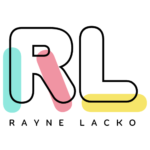http://www.rachellegardner.com/2011/10/10-tidbits-about-author-platform/
1. Definition of a platform? It’s the way you, the author, will get your name and your book in front of potential consumers. It’s the way you will bring sales to the table. It’s a group of people who are likely to buy your book, if you should ever publish one, because they already know of you and they like something about you.
2. You need a platform if you want to sell books, period. You need something. Whether you’re going to traditionally publish or self publish.
3. For first-time novelists, publishers still make their decisions based on the book itself, but they’ll expect you to have a head start on some kind of online platform, and they’ll expect you to step it up once you have a contract. Non-fiction authors, be aware the need for platform is a primary consideration for publishers, and should be primary for you even if you’re considering self-publishing.
4. You should focus your platform on the target audience of your books. Don’t focus as much on your topic as your audience. And narrow that audience down. You cannot say “everyone who likes to read thrillers” or “all Christians.” Engage in profiling. Figure out who your target reader is, and build a platform on trying to gather those people into your tribe.
5.If you’re a novelist, figuring out your target audience is very tricky. (With non-fiction it’s easier because it’s topically-based. Fiction, not so.) Still, the only way to effectively build a platform and market books is to identify your ideal reader profile and aim to speak to that person.
6. Platform building can include: building a speaking career and speaking to larger and larger audiences; having regular or ongoing visibility in the traditional media (radio, TV, magazines, newspapers); having a highly visible position in a large organization, for example, being a pastor of a 5,000 member church or the CEO of a 1,000-employee company; or building a strong online identity with blogging and social networking.
7. Nobody can to tell you exactly what to shoot for in terms of Facebook followers or blog visitors, because there are so many variables. (I’ll do a whole post on it sometime.) As a benchmark, you could shoot for 500 fans on your Facebook profile page and 15,000 monthly page views to your blog. The important thing is that you keep your numbers steadily growing (and of course, that you’re tracking your stats with a reliable indicator such as Google Analytics.)
8. Using social networking badly can be worse than not doing it at all. You can scare people away and make them vow to never buy a book you write! Read books like Inbound Marketing, read blogs on how to blog & Twitter effectively, and study how to do it right.
9. Building a platform takes time—sometimes, a lot of time. Sometimes non-fiction authors need to set aside their manuscripts and focus on gathering their tribe for awhile.
10. You only need a platform if you want to sell a lot of books. You’re free to ignore platform if your primary goal is to write rather than sell.

